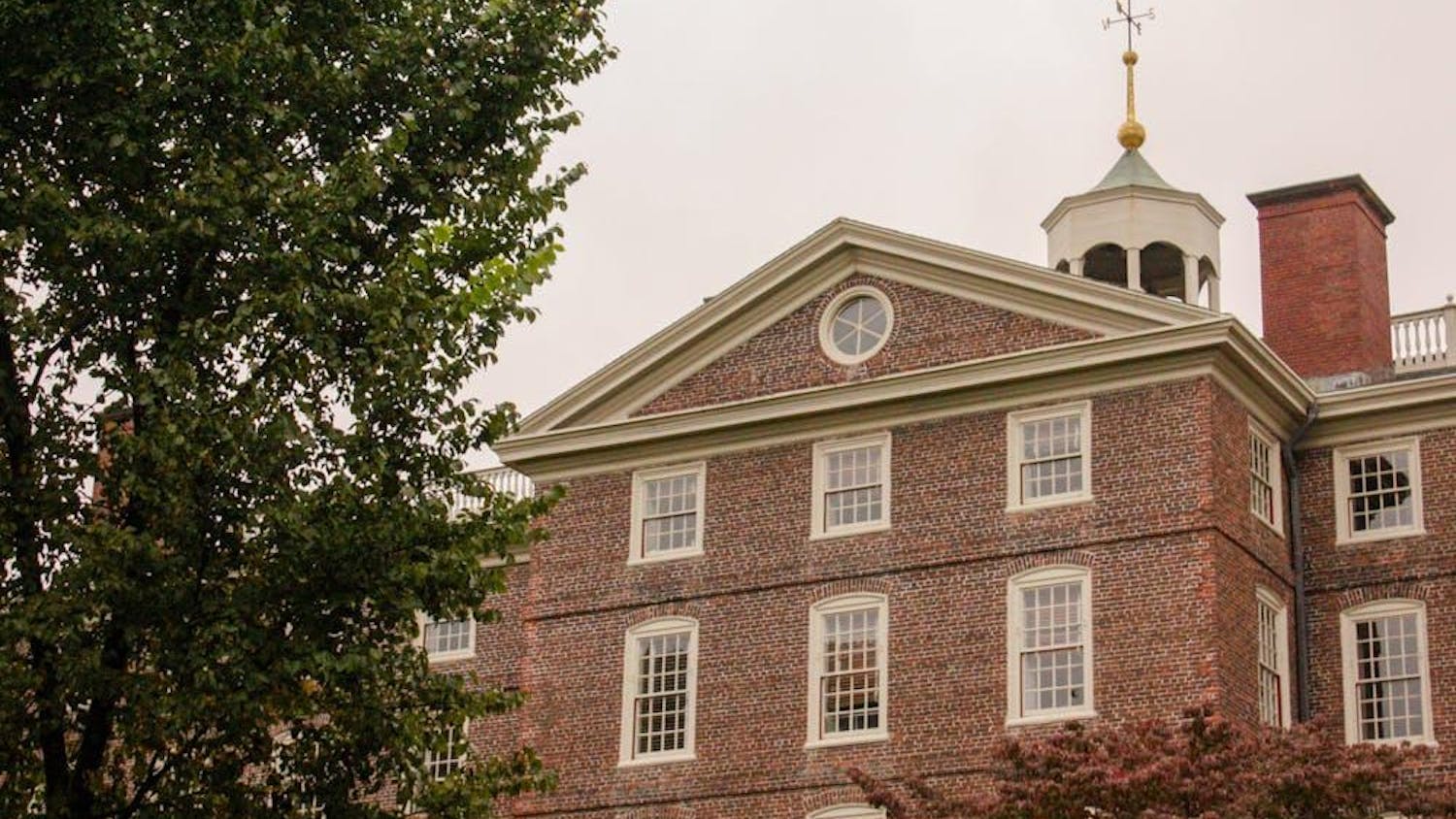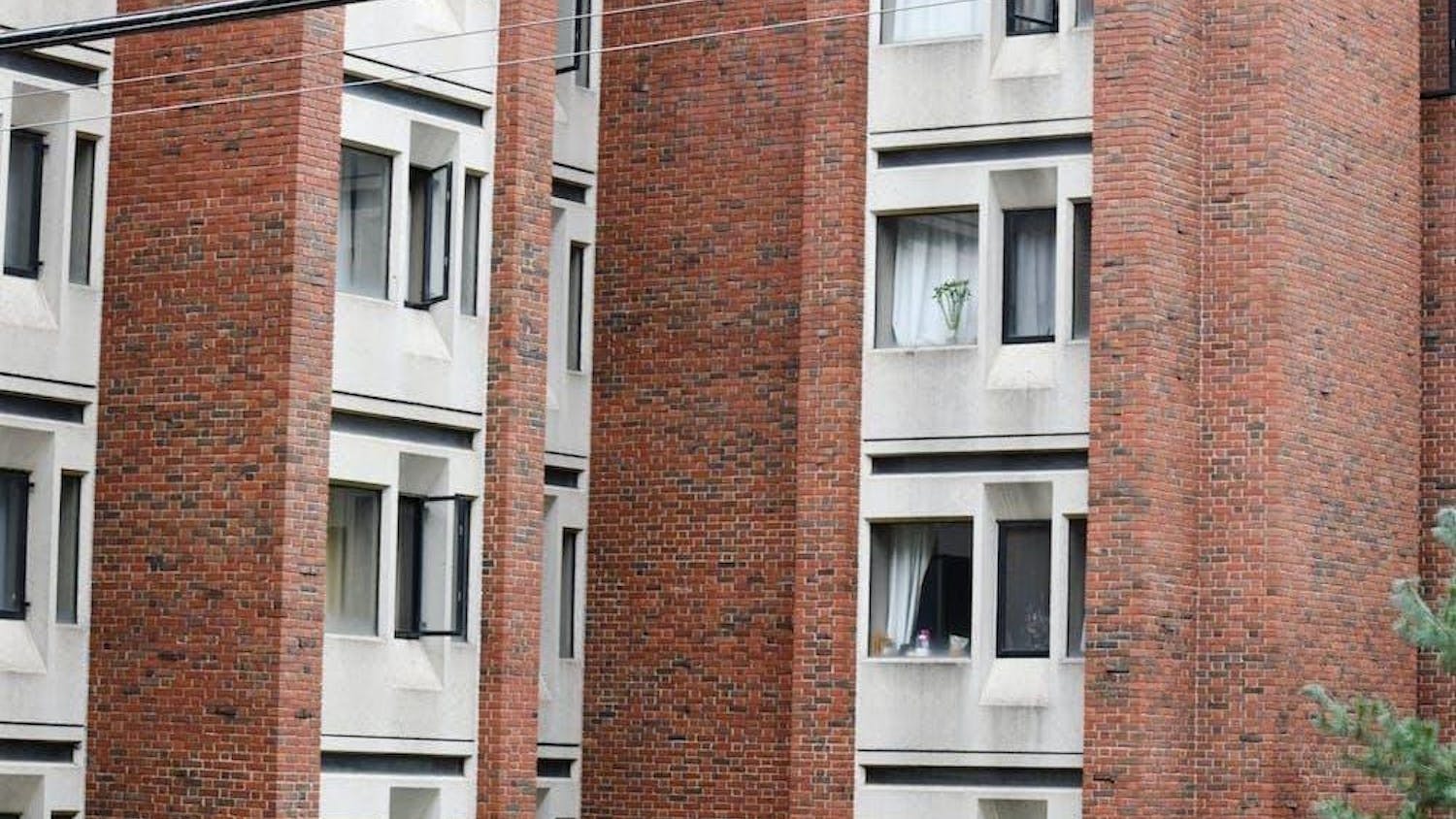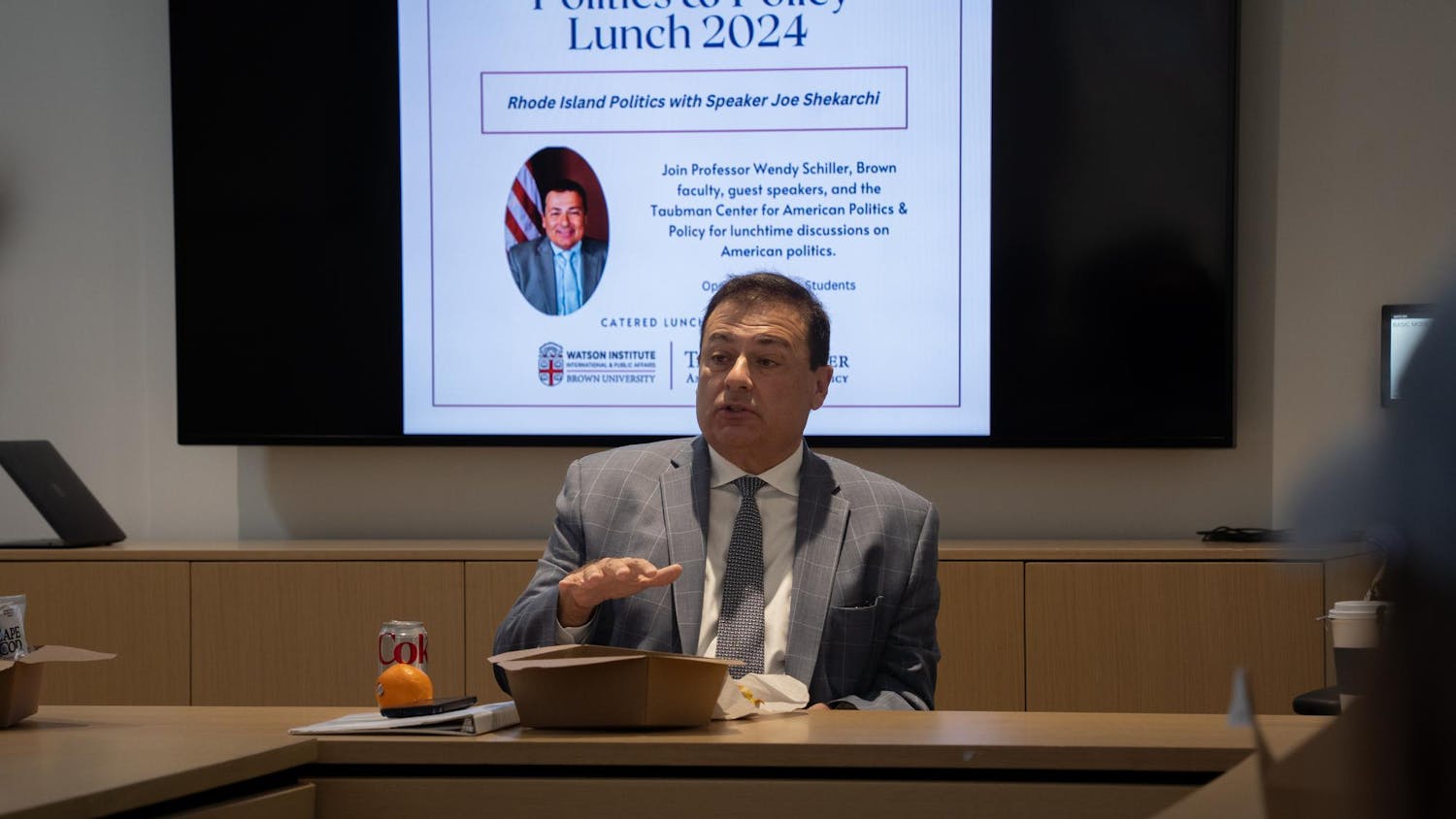Dean of the Graduate School Peter Weber testified Sept. 12 at a U.S. House Subcommittee on Higher Education and Workforce Training hearing in opposition to graduate student unionization. The subcommittee's Republican majority held the hearing in response to the National Labor Relations Board's vote to revisit its 2004 ruling that found against grad students suing for the opportunity to form a union at Brown. The board's decision to revisit the issue opens the door to a possible legal redefinition of the role of graduate students in higher education.
The NLRB is currently in the process of reviewing two cases of grad students attempting to unionize, one at New York University and the other at the Polytechnic Institute of New York University.
Weber, who was called by the Republican majority to testify, wrote in his congressional testimony that he believes "engaging in collective bargaining about issues at the core of the academic curriculum would wreak havoc with academic freedom."
The NLRB originally held in 2004 by a vote of 3-2 that grad students were not protected under federal labor law because they had a "primarily educational, not economic, relationship with their university."
But the partisan composition of the board, whose members are appointed by President Barack Obama, has markedly changed since its anti-unionization ruling eight years ago. President Obama has replaced the Republican-appointed majority that backed the previous ruling with a 3-1 Democratic majority. More board members are now receptive to arguments from unionization advocates that grad students meet the National Labor Relations Act's legal definition of employees, according to Paul Secunda, associate professor of law at Marquette University Law School.
"This is one of those topics that has gone back and forth for many years," said Secunda, an expert of labor law. "It was pretty split on political lines in 2004 ... and the same political disagreements apply here."
The NLRB's decision to review its previous ruling was preceded by the board's regional office in Manhattan, which declared in 2011 that NYU grad students had a "dual relationship" with their university that did not "necessarily preclude a finding of employee status."
But Weber said the University stands by the NLRB's 2004 ruling decided in its favor.
"We believe grad students are students," Weber told The Herald, disagreeing with the view that federal law should treat them as employees. "The things grad students do are part of their studies."
Weber said grad students at the University serve as teachers to further their academic training, adding that research has shown a link between learning to teach and becoming a better researcher.
But Christian Sweeney, deputy director of organizing for the AFL-CIO and another witness at the hearing, disputed Weber's view, saying he believes grad students meet the legal definition of employees.
"The university relies on their teaching and research work," Sweeney told The Herald, adding that he had been asked to testify because he was a teaching assistant while in grad school at the University of California at Berkeley.
"We're doing supervised, paid work for the university," said Daniel Aldana Cohen, a PhD student at NYU who has been organizing pro-unionization forces there for five years.
"The Brown ruling is a totally bizarre and arbitrary decision," said Cohen, who expressed confidence the NLRB would overturn the decision. "Research assistants, teaching and course assistants ... all constitute work."
Matt Canfield, a PhD student at NYU and a member of the United Auto Workers union local branch in Manhattan, said he was confident the NLRB would rule in grad students' favor and officially define them as employees protected under federal law. The UAW has worked to provide legal counsel and membership to grad students during their fight to form their own union.
The legal ramifications of the board's decision are significant for private university grad students, who lack collective bargaining rights and can be expelled if they attempt to unionize, Secunda said. Numerous grad student unions exist at private universities but have no formal recognition and are therefore left in a vulnerable position.
"Regardless of what the NLRB says, these unions are going to continue to exist," Secunda said, adding that he believes pro-unionization advocates have a strong argument in saying that they are entitled to legal protections as employees.
Matteo Riondato GS, president of the Graduate Student Council, said he had not yet taken a specific position on whether private university grad students have the right to unionize because he lacked enough information about the issue. He said that if the NLRB rules in favor of unionization, he would support creating a committee to advise the GSC on any possible actions the council would want to take in the wake of the decision.
"I'm always receptive of what the community wants," Riondato said. "I'm sure the Graduate Student Council will be completely open to any decision that will be best for the graduate student community."
Nancy Cleeland, director of the NLRB's office of public affairs, said the NLRB asked for briefs from any interested parties in June, but she declined to comment on when the NLRB is expected to issue its decision because the case is still pending review.
Weber said that even if the NLRB overturns its previous decision, it is unclear what the board's exact wording will be. He added that any new decision could be challenged in court but was not sure who would lead a legal challenge.




